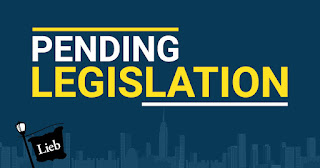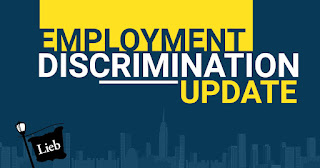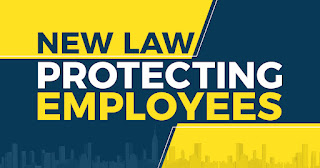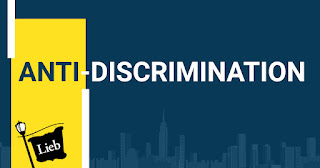Is employment discrimination illegal?
Yes,
discrimination in employment is illegal in the United States. Depending on the
state you live in, there may be even greater protections, rights, and damages
available to victims of workplace discrimination.
What qualifies as employment
discrimination?
The
laws enforced by the US Equal Employment Opportunity Commission (EEOC), and your
individual state, entitle victims to sue for compensation in the event of unfair
treatment based on their protected status or protected class.
While
these vary from state-to-state, they may include the following: race, ethnic
background, visible traits (hair texture, hairstyle, donning of religious
garments or items), color, national origin, citizenship status, alienage
status, immigration status, lawful source of income (subsidy recipient status),
occupation, religion, creed, marital status, partnership status, sex, gender,
sexual orientation, gender identity or expression (transgender status),
domestic violence victim status, stalking victim status, sex offense victim
status, familial status, pregnancy, presence of children, handicap
(disability), age, military status, uniformed service, veteran status, first
responder status, arrest record, and sealed conviction record.
Does discrimination have to be
intentional to warrant compensation?
No.
Regardless of whether the discrimination was unintentional or caused by
implicit biases, you are entitled to fair compensation.
What is the most common workplace
discrimination?
The
most common types of discrimination in the workplace include racial
discrimination, age discrimination, sex or gender discrimination, and
disability discrimination.
Can an independent contractor sue for
discrimination?
In
many places, you can sue for workplace discrimination whether you are an
employee, a domestic worker, or an independent contractor. If you are unsure of
whether or not this applies in your state or locale, it’s best to consult with
a skilled employment discrimination lawyer.
Who do workplace discrimination laws
apply to?
You
have a right to compensation if you are discriminated against by anyone in the
workplace. This could include a boss, coworker, vendor, client, patron, temp
agency, or franchisor.
Where can discrimination occur?
While workplace discrimination often occurs in the
office, it can happen anywhere—over a conference call, in a meeting, at a
holiday party, or at a work lunch—so long as you were fulfilling your work
responsibilities at the time of the discriminatory incident.
How do I know if I have been
discriminated against at work?
Federal
and state laws prevent hiring managers from changing available compensation,
rates of pay, hours, or availability of employment based on your protected
class status. Wages must be substantially equal between genders and, in cities like
New York City, wage transparency will be required when jobs are advertised.
If
you have been treated unfairly in any of these ways, have been spoken to in a
demeaning way, or have been subjected to offensive jokes or comments based on
your protected class status, then you may have a case for workplace
discrimination and should consider reaching out to an experienced New York
discrimination lawyer.
Can I be fired for speaking out
against discrimination?
Not
legally, no. If you are speaking out against discrimination in the workplace,
you are protected from retaliation. This is true regardless of whether you are
speaking out for yourself or on behalf of someone else. If you or a loved one
have been fired or treated unfairly for speaking out against discrimination at
work, we would love to take on your case and ensure that you receive the
compensation that you deserve. Give us a call.
Can you sue for workplace
discrimination?
Yes.
Not only is it possible to sue for workplace discrimination, but Lieb at Law, P.C. has helped countless individuals recover compensatory damages and punitive
damages for the pain inflicted by this unlawful act. Workplace discrimination
is a violation of your rights and should never be tolerated.
How long do I have to sue for
workplace discrimination?
Typically,
federal law requires that you make a filing within 300 days of the discrimination
(this may be cut down to 180 days based on your state’s laws, or even to 3 months
if you work in education in places like New York). However, certain state law claims can be
brought up to 3 years after the incident. So, you should call right away and
let us determine if you still have time to bring your case.
What can I recover if I sue for
workplace discrimination?
Employment
discrimination claims can result in very high awards because they are designed
to compensate victims for lost back-pay, lost front-pay, and experiencing emotional
distress / loss of dignity. Additionally, the law provides that victims can
recover other forms of compensatory damages, punitive damages, and their
attorneys’ fees. In fact, the perpetrator can lose their license (if licensed),
be required to take trainings, and be ordered to stop their offensive behavior.
There are fines and more. However, we are ethically required to advise you that
our prior results do not guarantee a similar outcome. So, you should contact us today and get a tailored
evaluation of your specific situation.
*Attorney Advertising
.jpg)






















